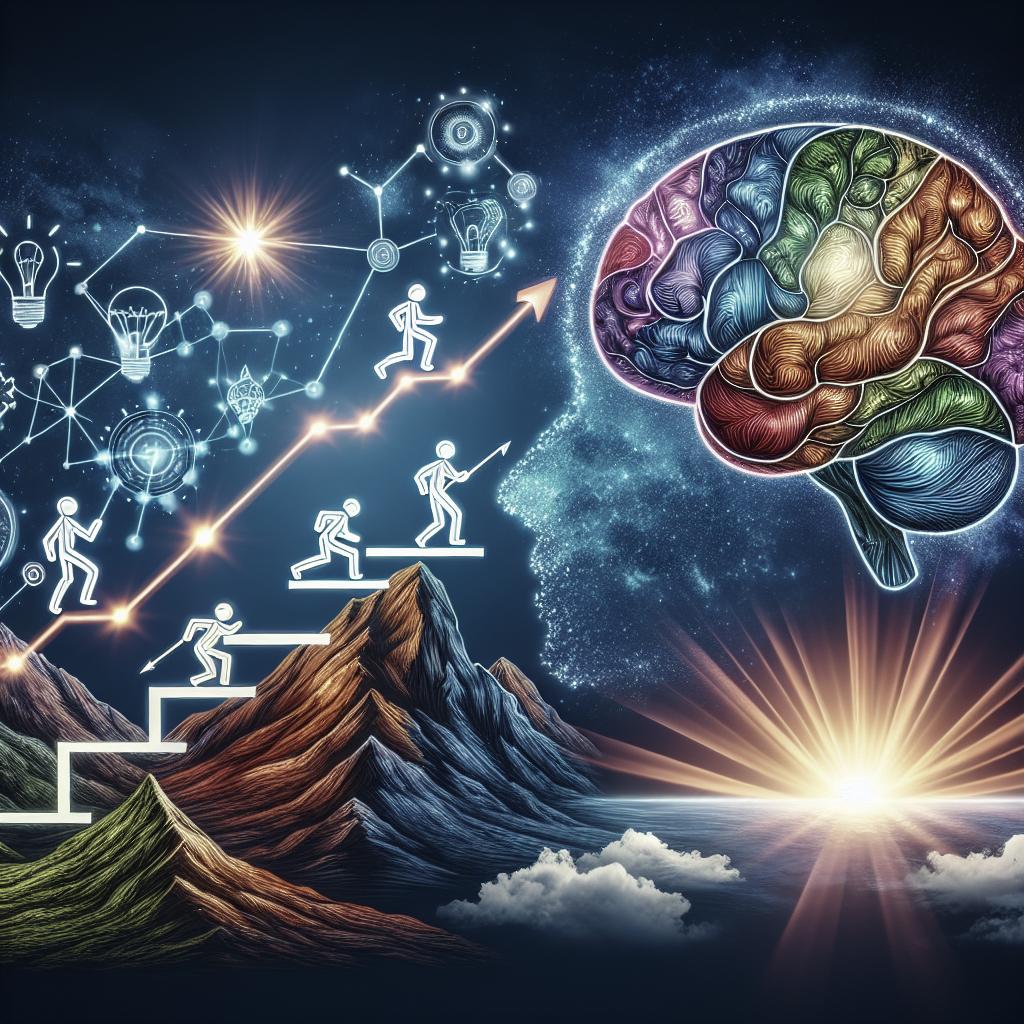“`html
In today’s fast-paced and ever-evolving world, the distinction between a fixed mindset and a growth mindset can significantly impact how individuals face life’s myriad challenges. People with a growth mindset believe that their abilities and intelligence can develop with time and effort. This perspective shifts their approach to difficulties, transforming obstacles into opportunities for learning and growth. In this blog post, we explore how a growth mindset enables people to embrace challenges, view failure differently, persist through difficulties, actively seek feedback, and develop new strategies and skills. Understanding these aspects can inspire and guide those looking to cultivate a growth-oriented approach in their personal and professional lives.
The Power of a Growth Mindset
A growth mindset embodies the belief that abilities and intelligence are not static but can be cultivated through dedication and hard work. This concept, introduced by psychologist Carol Dweck, contrasts with a fixed mindset, where individuals perceive their talents as immutable traits. Those with a growth mindset are more likely to embrace challenges, persevere through setbacks, and see effort as a pathway to mastery. This perspective empowers individuals to seek continuous improvement and adapt to the complexities of the modern world.
Moreover, a growth mindset encourages a love for learning. Individuals with this mindset are curious, open to new experiences, and understand that learning from mistakes and exploring novel ideas are essential for personal and professional development. This intrinsic motivation to learn and grow fosters resilience and innovation, crucial qualities in navigating an uncertain and competitive environment.
Embracing Challenges as Opportunities
People with a growth mindset view challenges not as threats but as opportunities to learn and improve. When faced with a difficult situation, they recognize that overcoming it can provide valuable lessons and insights. This proactive approach enables them to tackle problems head-on, apply creative solutions, and become stronger and more capable individuals.
Instead of avoiding challenges, growth-minded individuals deliberately seek them out. They understand that avoiding difficult situations limits their potential and stifles growth. By taking on new and challenging tasks, they expand their skill set, gain confidence, and increase their resilience. This approach allows them to continuously evolve and stay relevant in their personal and professional lives.
Viewing Failure Differently
For those with a growth mindset, failure is not a dead-end but a stepping stone to success. They recognize that failure is an inherent part of the learning process and a necessary component of growth. Instead of being discouraged by setbacks, they analyze what went wrong, glean valuable insights, and apply these lessons to future endeavors.
This constructive perspective on failure helps them develop resilience and adaptability. By understanding that mistakes are opportunities for learning rather than signs of inadequacy, they build the mental fortitude to push through difficult times and emerge stronger. This attitude also fosters a culture of innovation and risk-taking, as individuals are not afraid to experiment and pursue bold ideas.
Persistence and Resilience
The willingness to persevere in the face of adversity is a hallmark of a growth mindset. Growth-minded individuals understand that success often requires sustained effort and that persistence is key to overcoming obstacles. By maintaining a long-term perspective and remaining committed to their goals, they can navigate setbacks and continue moving forward.
Resilience, or the ability to bounce back from difficulties, is another essential quality of those with a growth mindset. They cope with stress and adversity by developing healthy coping mechanisms and drawing on their inner strength. This resilience not only helps them in times of crisis but also contributes to their overall well-being and success.
Seeking Feedback and Support
People with a growth mindset actively seek feedback and support from others. They understand that constructive criticism is vital for growth and are open to hearing suggestions and advice. This readiness to receive feedback enables them to identify areas for improvement and make necessary adjustments.
Additionally, they value collaboration and mentorship, recognizing that others can offer valuable perspectives and guidance. By building a network of supportive relationships, growth-minded individuals create an environment conducive to personal and professional growth. This collaborative approach fosters a sense of community, enhances learning, and accelerates progress towards their goals.
Developing Strategies and Skills
To thrive in the face of challenges, people with a growth mindset are committed to developing effective strategies and honing their skills. They understand that acquiring new competencies and refining existing ones are essential for success in a dynamic world. This commitment to self-improvement drives them to continuously learn, adapt, and innovate.
Moreover, they are strategic in their approach to problem-solving. By breaking down complex issues into manageable parts and systematically addressing each component, they can make steady progress towards their goals. This methodical approach, combined with a willingness to experiment and iterate, enables them to devise creative solutions and achieve lasting success.
Next Steps
| Aspect | Description |
|---|---|
| The Power of a Growth Mindset | Belief in the potential for development through effort; fosters curiosity and innovation. |
| Embracing Challenges as Opportunities | Viewing challenges as learning experiences; seeking out difficult tasks to expand skills. |
| Viewing Failure Differently | Seeing failure as a learning opportunity; building resilience through setbacks. |
| Persistence and Resilience | Staying committed to long-term goals; developing coping mechanisms to handle adversity. |
| Seeking Feedback and Support | Actively seeking constructive criticism; valuing collaboration and mentorship. |
| Developing Strategies and Skills | Continuous learning and skill development; strategic problem-solving. |
“` This table provides a comprehensive summary of how a growth mindset influences individuals’ responses to challenges across various aspects, highlighting key components and their descriptions. Empowered by these insights, readers can take actionable steps towards cultivating a growth mindset in their own lives.


